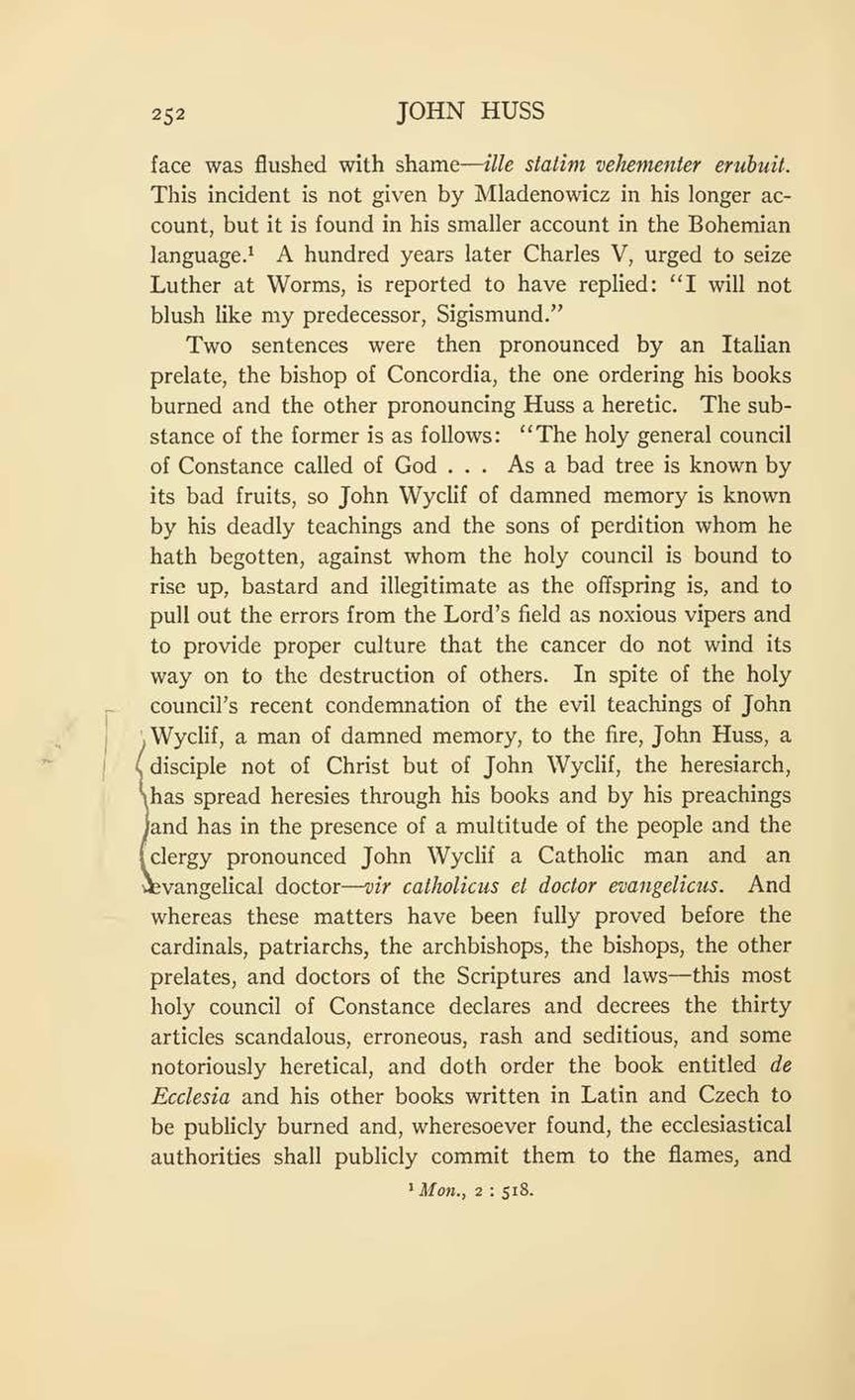face was flushed with shame—ille statim vehementer erubuit. This incident is not given by Mladenowicz in his longer account, but it is found in his smaller account in the Bohemian language.[1] A hundred years later Charles V, urged to seize Luther at Worms, is reported to have replied: “I will not blush like my predecessor, Sigismund.”
Two sentences were then pronounced by an Italian prelate, the bishop of Concordia, the one ordering his books burned and the other pronouncing Huss a heretic. The substance of the former is as follows: “The holy general council of Constance called of God . . . As a bad tree is known by its bad fruits, so John Wyclif of damned memory is known by his deadly teachings and the sons of perdition whom he hath begotten, against whom the holy council is bound to rise up, bastard and illegitimate as the offspring is, and to pull out the errors from the Lord’s field as noxious vipers and to provide proper culture that the cancer do not wind its way on to the destruction of others. In spite of the holy council’s recent condemnation of the evil teachings of John Wyclif, a man of damned memory, to the fire. John Huss, a disciple not of Christ but of John Wyclif, the heresiarch, has spread heresies through his books and by his preachings and has in the presence of a multitude of the people and the clergy pronounced John Wyclif a Catholic man and an evangelical doctor—vir catholicus et doctor evangelicus. And whereas these matters have been fully proved before the cardinals, patriarchs, the archbishops, the bishops, the other prelates, and doctors of the Scriptures and laws—this most holy council of Constance declares and decrees the thirty articles scandalous, erroneous, rash and seditious, and some notoriously heretical, and doth order the book entitled de Ecclesia and his other books written in Latin and Czech to be publicly burned and, wheresoever found, the ecclesiastical authorities shall publicly commit them to the flames, and
- ↑ Mon., 2: 518.
